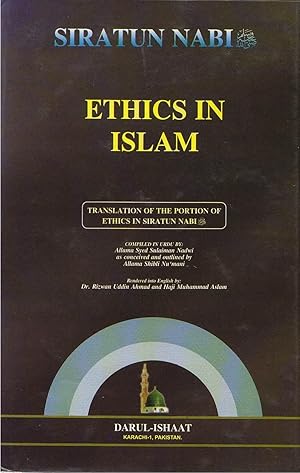
1. General:
a. To build up personal and professional qualities in the light of Islamic ethics.
b. To acquire the knowledge of basic global ethical principles enshrined in the Islamic sources to enable exercise of professional judgment in modern ethical issues.
c. Students will be encouraged to think critically about the ethical implications.
2. Specific:
a. Knowledge:
i. To understand the values and principles concerning ethics and personality
development.
ii. To comprehend the basic concepts, ideas and principles about professional
and scientific issues.
iii. To exhibit leadership qualities in ethics and profession.
b: Skills:
i. To analyze ethical issues and resolve the problems arise in their profession.
ii. To be able to understand and implement the Islamic ethical values.
c. Attitude/Behavior:
i. To develop honest and responsible professionals who will be able to perform leading role in their respective fields.
1 General Ethics
a. Ethics, Meaning and Introduction
b. Introduction to Ethical Theories
c. The Basic Principles of Ethics in Different Religions
d. Ethics in Islam, Theory and Practice
e. The Impact of Five Pillars and Fundamentals of Islam on the Moral Conduct of Muslims
f. The distinction of the Prophet Muhammad (SAW) among the Teachers of Ethics
g. Making Role Models in Society
h. Virtuous Conduct and Baseness (Raza’il)
i. Qualities of a Good Professional
j. Rights and Duties a Comparative Approaches
k. Etiquettes and Manners in Muslim Societies
2 Personality Development in the light of Seerah:
a. A comprehensive view of Prophet Muhammad’s (SAW) Life
b. Prophet Muhammad (SAW) as a Preacher
c. Prophet Muhammad (SAW) as a Moa’alim
d. Prophet Muhammad (SAW) as a Head of Family
e. Prophet Muhammad (SAW) as a Trader
f. Prophet Muhammad (SAW) as a Head of State
g. Prophet Muhammad (SAW) as a Commander-in-Chief
 Ethics in Islam translation of the portion of ethics in siratun nabi
by
Ethics in Islam translation of the portion of ethics in siratun nabi
by
 Islamiat professional & social ethics
by
Islamiat professional & social ethics
by